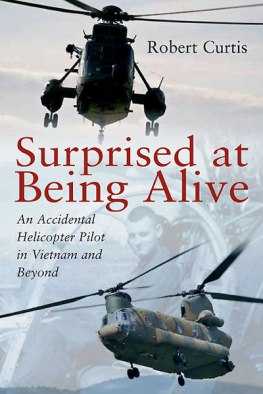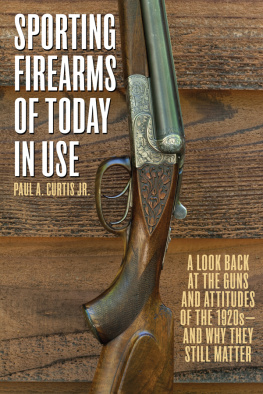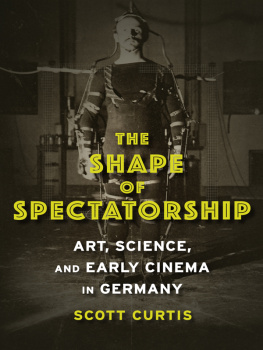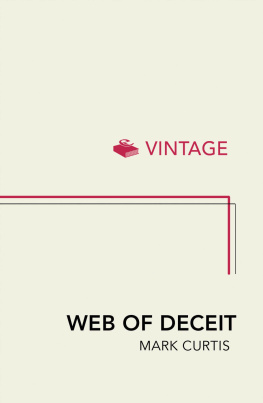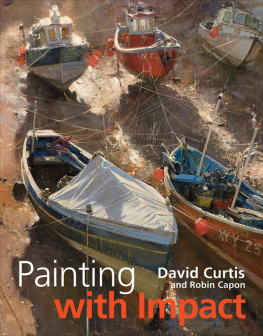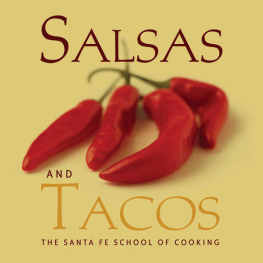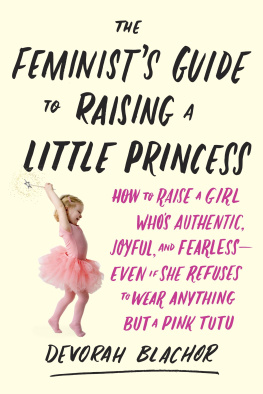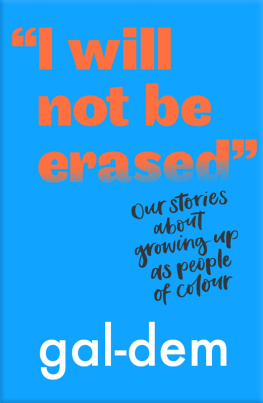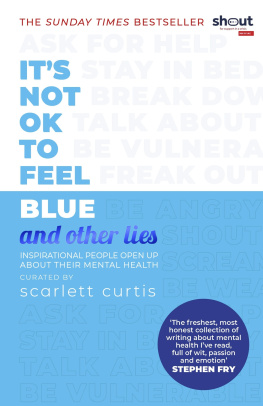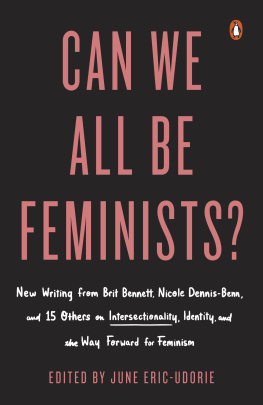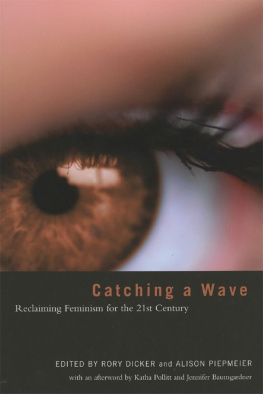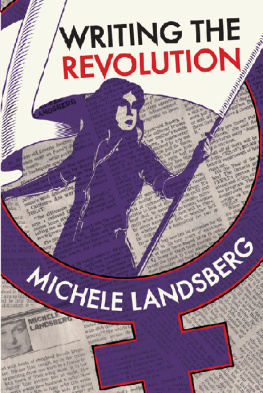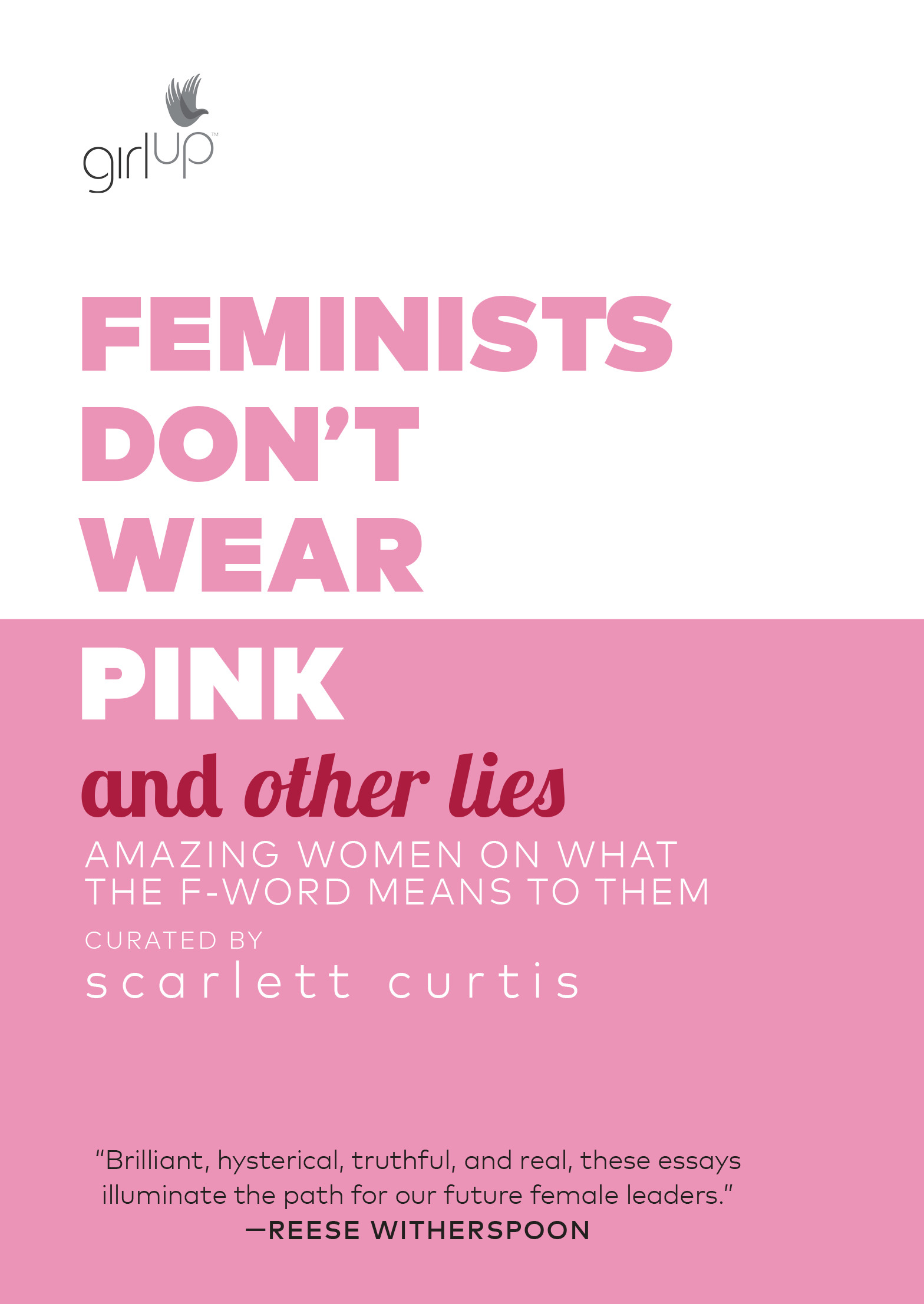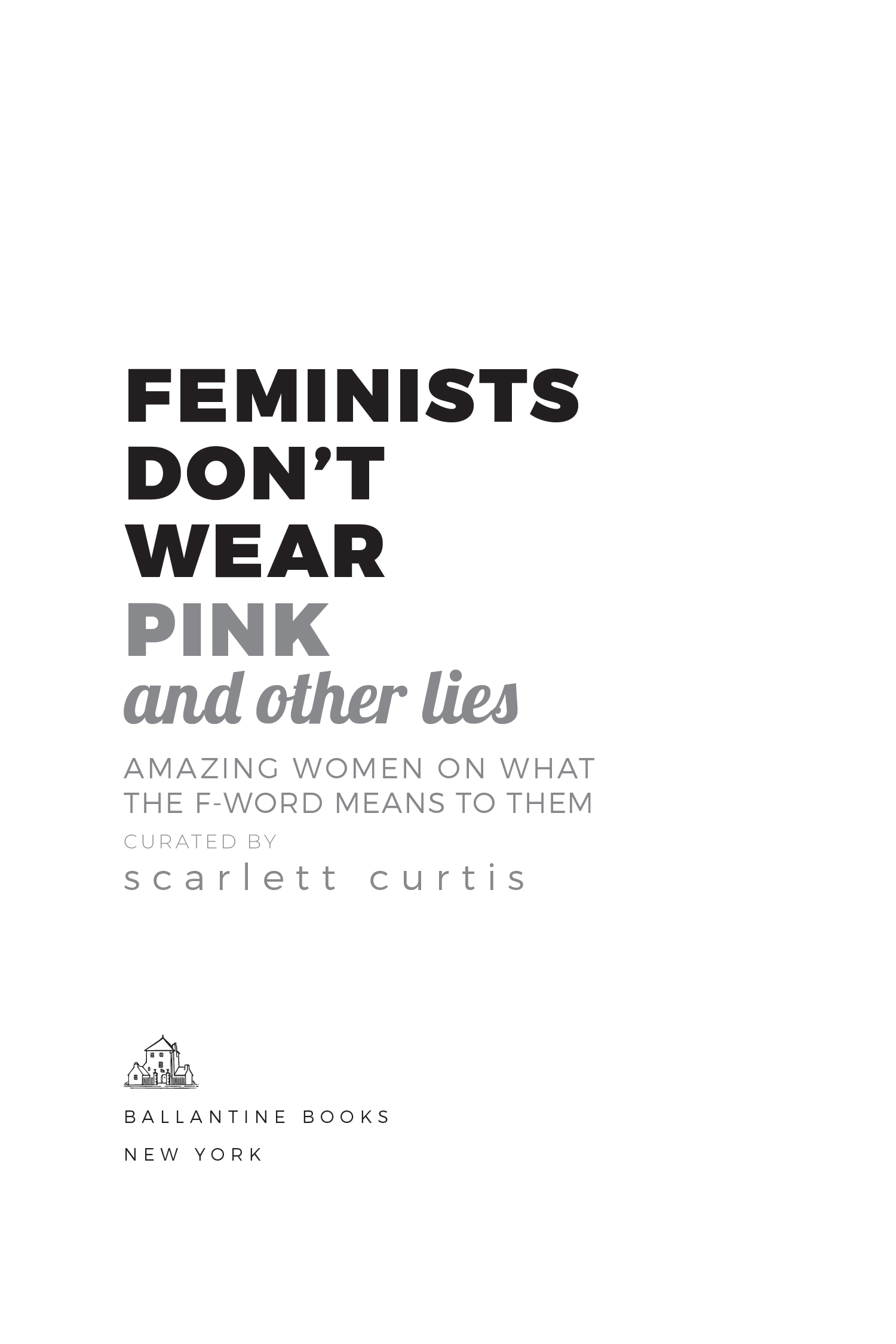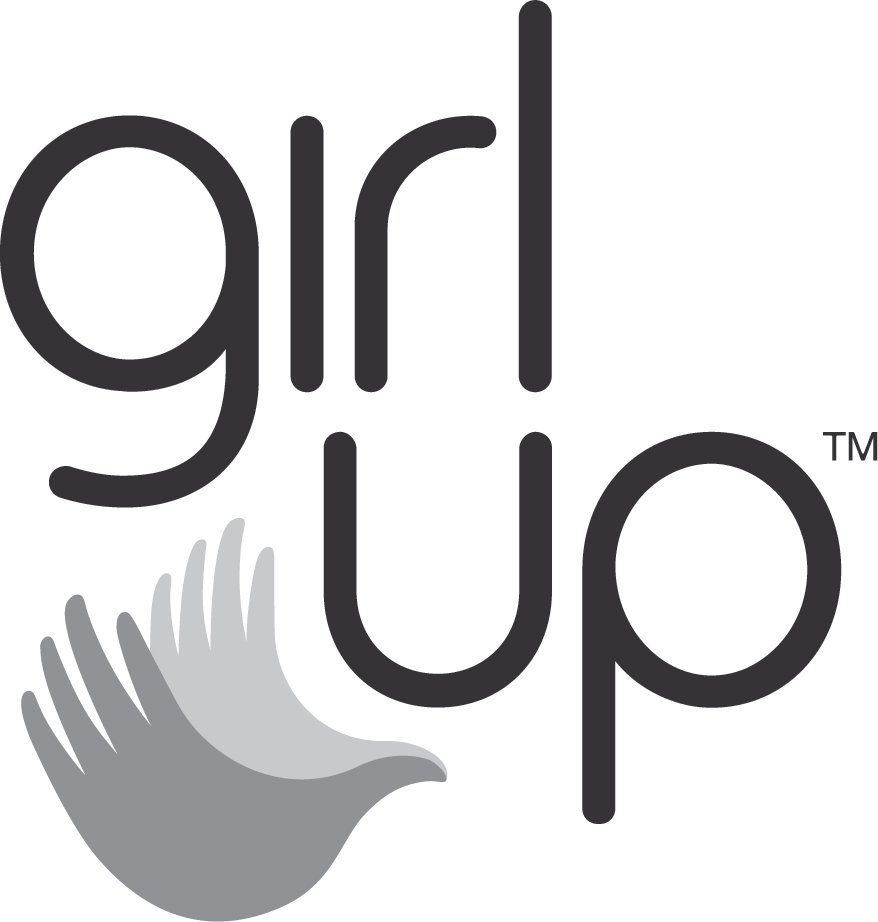Contents
To protect the privacy of those individuals encountered through the authors work, all persons appearing in the book as friends or clients are either fictitious or have had their names and identifying characteristics changed to protect their privacy. Any resemblance to real people, living or dead, is entirely coincidental.
Compilation copyright 2018 by Scarlett Curtis
The copyright to each individual essay is owned by its author.
All rights reserved.
Published in the United States by Ballantine Books, an imprint of Random House, a division of Penguin Random House LLC, New York.
B ALLANTINE and the H OUSE colophon are registered trademarks of Penguin Random House LLC.
Published in the United Kingdom by Penguin Books, London, in 2018.
Hardback ISBN9781984819178
Ebook ISBN9781984819185
randomhousebooks.com
Book design by Mandy Norman
v5.3.2
a
Contents
FOREWORD
BY
Girl Up
At Girl Up, feminism is one of our favourite words and its different, and awesome, wherever you go. Just as every girl around the world has her own unique story to tell, she also has her own particular version of what feminism means to her. No two people experience feminism in the same way, but each perspective is valid and important. Girl Up is a global leadership development initiative, positioning girls to be leaders in the movement for gender equality. Were building a community that is working towards a world where every girl has an equal opportunity to reach her full potential and change the world, regardless of race, religion, ethnicity, sexual orientation, age or ability. Every girl has a unique and powerful story to tell. We celebrate these stories and the diversity of our movement across our global community.
WHERE WE ARE
Girl Up has more than 2,200 clubs in over a hundred countries, and weve trained 40,000 girls from all backgrounds to create tangible change for girls everywhere. Girl Up has empowered young women leaders to defend gender equality and equal rights for every girl.
WHAT WE DO
Girl Up provides leadership training and gives girls the tools to become gender-equality advocates and activists. Through our programmes, girls broaden their social-impact skill set, receive a platform to tell their stories and apply STEM for social good. Our girl leaders create real policy change at local and national levels, and raise millions of dollars to support United Nations programmes that reach tens of thousands of girls around the world and to build community-based movements. Girl Up is an initiative of the UN Foundation, working across a global community of partners to achieve gender equality worldwide.
WANT TO JOIN US?
Our movement is reaching every corner of the globe and we want YOU to be a part of it. If youre at secondary school or university, girl or boy, you can join Girl Up and start taking action for gender equality today. But its not just students who can join! You can run a race with Team Girl Up, join a Girl Up Young Professionals meetup, or connect us with your organization to partner with Girl Up.
Learn more at GirlUp.org/Join.
Science, Technology, Engineering and Mathematics
EVERY GIRL HAS A UNIQUE AND POWERFUL STORY TO TELL. WE CELEBRATE THESE STORIES AND THE DIVERSITY OF OUR MOVEMENT ACROSS OUR GLOBAL COMMUNITY.
INTRODUCTION
BY
Scarlett Curtis
JOURNALIST, ACTIVIST
I didnt know I was a feminist until I was fifteen. I didnt know I was a feminist because I didnt know I needed to be, and I also didnt think I would still be allowed to wear make-up if I became one. And I seriously loved make-up. I went to school just like my brothers, my mum had a job just like my dad. Feminism was something that we learned about in history class and didnt have to worry about any more. Like telegrams or corsets or the plague, feminism was the stuff of suffragettes and burnt bras and fights that had been won and long forgotten.
Much like a rare breed of bird, I knew feminists still existed out there in the wild. I also knew I most definitely did not want to be one. For starters, it was the middle of the noughties, and in a world where Beyonc existed I couldnt fathom what on earth these feminists were fighting for. More importantly my image of a feminist was entirely in opposition to every single priority my fifteen-year-old brain possessed. Feminists didnt use make-up (my favourite hobby). They didnt shave their legs (my favourite form of exercise). Feminists didnt like boys (my favourite type of human) and, most importantly, feminists definitely didnt wear pink. And pink was my favourite colour. Being a feminist would mean disposing of half my wardrobe, revealing my spotty skin and hairy legs to the world and putting an end to the twenty-plus daily MSN messages I sent to boys I had crushes on.
I DIDNT KNOW I WAS A FEMINIST UNTIL I WAS FIFTEEN.
Theres an amazing feminist superhero called Audre Lorde who said: Our feelings are our most genuine paths to knowledge. My nosedive into feminism was fuelled entirely by feelings. In the years since, it has developed and grown into something far wordier, filled with thoughts, books, quotes and plans for action; but at the beginning my feminism was just a feeling. My feminism was born with little context or language and lots of emotion.
When I was fifteen I was treated very badly by a group of men and a few women who wouldnt have treated me that way if I had been a man. I was a teenage girl with blue dip-dyed hair and a predilection for wearing tutus to hospital appointments. I was very ill and I was misdiagnosed and mistreated for far longer than even an irritating teenager who could probably have done with being knocked down a few pegs deserves to be. I was mistreated and silenced for a number of reasons that only now, nearly a decade on, am I finally beginning to unpick. It happened because I was young, because I was emotionally complicated, but it also happened because I was a girl. And because the person sitting next to me in every waiting room, doctors office and hospital ward was a woman and a mother.
In the grand scheme of heinous acts committed by the patriarchy, what happened to me was very small. It was very small and it got better, and Im extremely lucky. But it did happen. And it sparked a feeling inside me; and that feeling began to grow.
My illness also meant that I spent three years of my life lying in my bedroom with nothing much to do except read and Google and knit small animals. So I began to read. I read Virginia Woolf and Gloria Steinem and Caitlin Moran and then realized they were all white women and I might need to start looking a little further. I read Audre Lorde and Roxane Gay and Chimamanda Ngozi Adichie, and slowly but surely I began to understand and think and see.
I began to understand that what had happened to me was a small ripple that took place in an ocean of pain, movement and change. I began to understand that gender equality was not in fact a thing of the past but a far-off dream for the future. A dream that generations of women and men had been fighting for and continued to fight for every single day.


